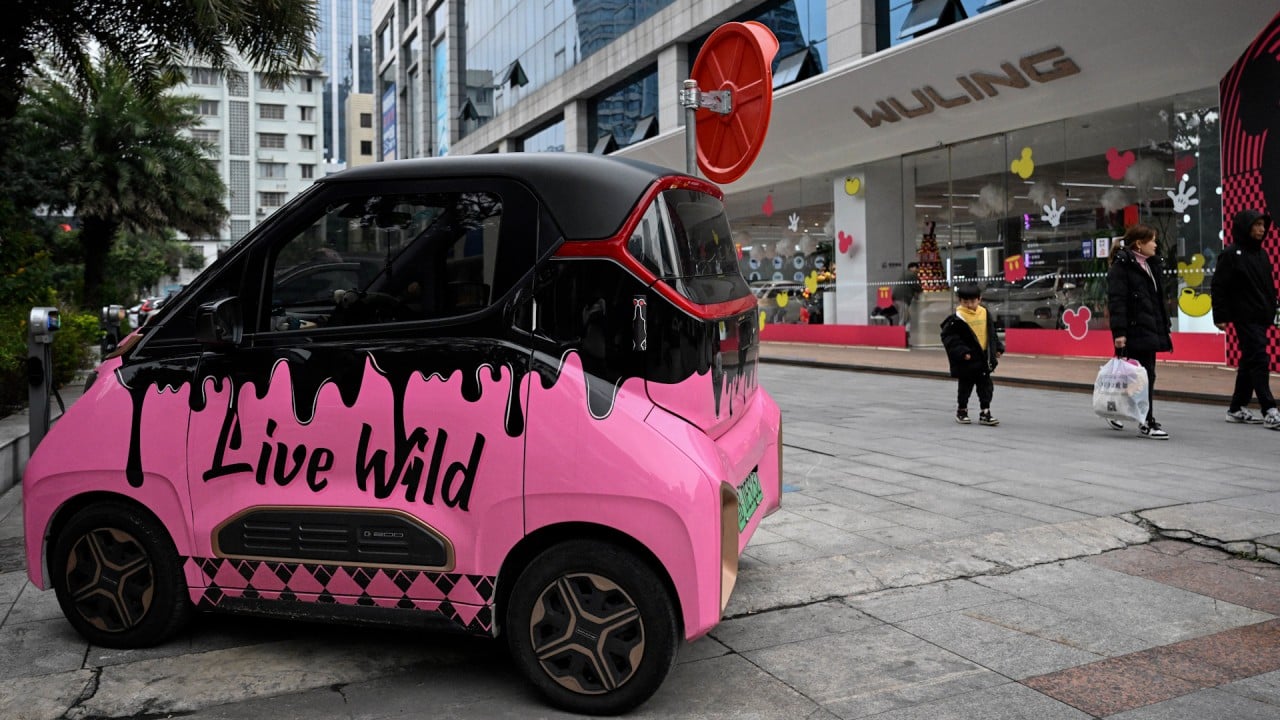China doubles cash subsidies to propel EV sales as economic growth falls short

Beijing has doubled subsidies granted to electric vehicle (EV) buyers, just three months after it rolled out incentives to accelerate the transition of the domestic automotive industry.
Consumers who replace their conventional cars with an EV stand to receive a subsidy of 20,000 yuan (US$2,770) per vehicle, double the 10,000 yuan announced in April, according to a circular published by the National Development and Reform Commission and the Ministry of Finance on Thursday.
“All regional governments are encouraged to support vehicle purchase for replacement purposes,” the circular said. “As consumers dump their used cars, measures should be taken to bolster purchases of new passenger cars.”
Gross domestic product expanded 4.7 per cent on year in the three months to June, nearly 0.4 percentage points short of the growth predicted by Chinese financial data provider Wind.
EVs have been among the bright spots of the mainland’s economy since 2020. In June, a total 856,000 pure electric and plug-in hybrid vehicles were delivered to Chinese consumers, a year-on-year increase of 28.6 per cent. It followed a year-on-year jump of 29 per cent in April and a 38.7 per cent surge in May, according to data by the China Passenger Car Association.
Government subsidies have effectively spurred the growth of China’s EV sector, which accounts for 60 per cent of the global total in terms of car deliveries.
Subsidies for buyers, first introduced in 2009, peaked in 2014 at 100,000 yuan, which helped boost sales fourfold the following year.
Beijing scrapped the incentives at the end of 2022. Until the subsidies were withdrawn, the central government paid 12,600 yuan to buyers of EVs with a driving range of more than 400km.
“The 10,000 yuan award announced in April may not be enough to engineer another round of delivery surge as expected by senior officials,” said Gao Shen, an independent analyst in Shanghai. “Many EV fans are budget conscious and only stronger incentives can whet their buying appetite.”
Hu Xiaopeng, a researcher with the Shanghai Academy of Social Sciences, said consumer vigour in China could be stimulated if concerted efforts among different authorities can be made to ensure a smooth running of the market economy.
“A healthy and unified market is desirable,” he said. “But a sound market-based system cannot be created until those harmful elements are removed.”
The researcher was referring to a discount war among major Chinese EV makers that has squeezed profit margins.
In February, BYD, the world’s largest EV maker, fired the first salvo in the price war, slashing the price of nearly all its cars by 5 to 20 per cent. After that, the price of 50 models across a range of brands had dropped by 10 per cent on average, Goldman Sachs said in a report in April.
Industry officials including David Xu Daquan, president of Bosch China, have been urging mainland EV assemblers to quit cutthroat competition and focus on long-term growth of the industry.
Source link




